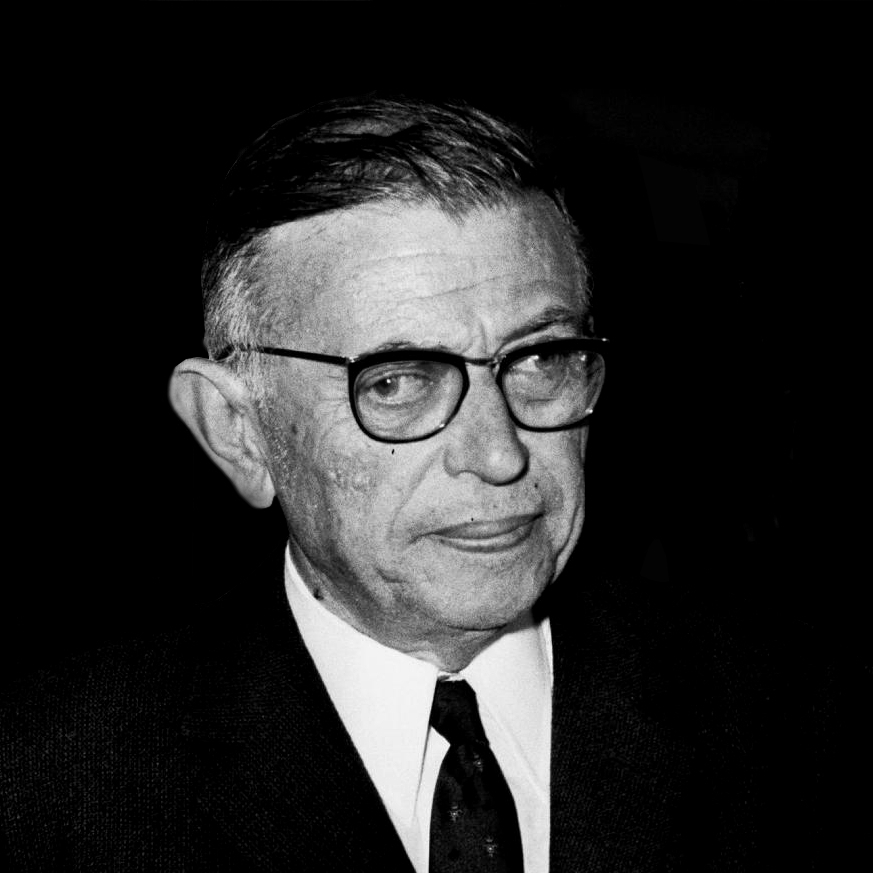1964 Nobel Prize in Literature on:
[Wikipedia]
[Google]
[Amazon]
 The 1964
The 1964
nobelprize.org Sartre declined the prize, saying that he never accepted any official honours and that he did not want the writer to become an institution. The
Sartres brev kom försent till Akademien
Svenska Dagbladet 2 January 2015 (in Swedish)
Jean-Paul Sartre
nobelprize.org
List of all nominations for the 1964 Nobel Prize in literature
nobelprize.org Jean-Paul Sartre Nobel Prize in Literature
 The 1964
The 1964 Nobel Prize in Literature
)
, image = Nobel Prize.png
, caption =
, awarded_for = Outstanding contributions in literature
, presenter = Swedish Academy
, holder = Annie Ernaux (2022)
, location = Stockholm, Sweden
, year = 1901
, ...
was awarded the French writer Jean-Paul Sartre
Jean-Paul Charles Aymard Sartre (, ; ; 21 June 1905 – 15 April 1980) was one of the key figures in the philosophy of existentialism (and phenomenology), a French playwright, novelist, screenwriter, political activist, biographer, and litera ...
"for his work which, rich in ideas and filled with the spirit of freedom and the quest for truth, has exerted a far-reaching influence on our age."Nobel Prize in Literature 1964nobelprize.org Sartre declined the prize, saying that he never accepted any official honours and that he did not want the writer to become an institution. The
Swedish Academy
The Swedish Academy ( sv, Svenska Akademien), founded in 1786 by King Gustav III of Sweden, Gustav III, is one of the Swedish Royal Academies, Royal Academies of Sweden. Its 18 members, who are elected for life, comprise the highest Swedish lang ...
said in announcement: "It will be recalled that the laureate has made it known that he did not wish to accept the prize. The fact that he has declined this distinction does not in the least modify the validity of the award. Under the circumstances, however, the Academy can only state that the presentation of the prize cannot take place." It is the only known occasion when a Laureate has voluntarily declined to accept the Nobel Prize in literature.Kaj SchueleSartres brev kom försent till Akademien
Svenska Dagbladet 2 January 2015 (in Swedish)
The Laureate
Jean-Paul Sartre is known for having formulated and popularized the philosophyexistentialism
Existentialism ( ) is a form of philosophical inquiry that explores the problem of human existence and centers on human thinking, feeling, and acting. Existentialist thinkers frequently explore issues related to the meaning, purpose, and valu ...
. His best known work include the play '' Les Mouches'', novels such as '' La Nausée'', short stories and philosophical works.nobelprize.org
Nominations and prize decision
76 individuals were nominated for the Nobel Prize in literature in 1964. On 17 september 1964 the Nobel committee proposed that the prize should be awarded to Jean-Paul Sartre. The second name on the list wasMikhail Sholokov
Mikhail Aleksandrovich Sholokhov ( rus, Михаил Александрович Шолохов, p=ˈʂoləxəf; – 21 February 1984) was a Russian novelist and winner of the 1965 Nobel Prize in Literature. He is known for writing about life ...
(who was awarded the prize in 1965) and the third name was W.H. Auden
Wystan Hugh Auden (; 21 February 1907 – 29 September 1973) was a British-American poet. Auden's poetry was noted for its stylistic and technical achievement, its engagement with politics, morals, love, and religion, and its variety in ...
. There was some ambivalency within the Swedish Academy to award Sartre. He had been nominated the first time in 1957, but his candidacy was postponed for the future as the Academy was not sure if Sartre's work would have any historical importance. His candidacy was considered and postponed again in 1962 for similar reasons. The publication of '' Les Mots'' in 1963 is believed to have strengthed Sartre's candidacy and in October 1964 the Academy decided to award Sartre, their decision was sealed with a final vote on 22 October 1964. A week earlier Sartre, knowing that he was a candidate for the prize, had sent a letter to the Swedish Academy saying he would not accept the award, but as the Academy had already made their decision before the formal final vote they disregarded the letter. The Academy's permanent secretary Karl Ragnar Gierow
Karl Ragnar Knut Gierow (2 April 190430 October 1982) was a Swedish theater director, author and translator. Biography
Gierow was born and grew up in Helsingborg. He enrolled at Lund University in 1922, and received a licentiate degree in 1934.
...
replied to Sartre's letter saying that the decision had already been made and urged Sartre to reconsider and accept the prize.
Reactions
In a text published inLe Figaro
''Le Figaro'' () is a French daily morning newspaper founded in 1826. It is headquartered on Boulevard Haussmann in the 9th arrondissement of Paris. The oldest national newspaper in France, ''Le Figaro'' is one of three French newspapers of reco ...
on 23 October 1964 Sartre wrote that he regretted that his refusal to accept the prize had caused a scandal. He explained that he never accepted any prizes or membership of institutions as he believed an author who accepted such things became forever associated with the prize or institution, and that the author should not allow himself to become an institution.
Aftermath
In his memoirsLars Gyllensten
Lars Johan Wictor Gyllensten (12 November 1921 – 25 May 2006) was a Swedish author and physician, and a member of the Swedish Academy.
Gyllensten was born and grew up in a middle-class family in Stockholm, son of Carl Gyllensten and Ingrid Ran ...
claimed that someone, either Sartre himself or someone related to him, in 1975 had contacted the Swedish Academy and asked if the prize money was available.
References
{{ReflistExternal links
List of all nominations for the 1964 Nobel Prize in literature
nobelprize.org Jean-Paul Sartre Nobel Prize in Literature